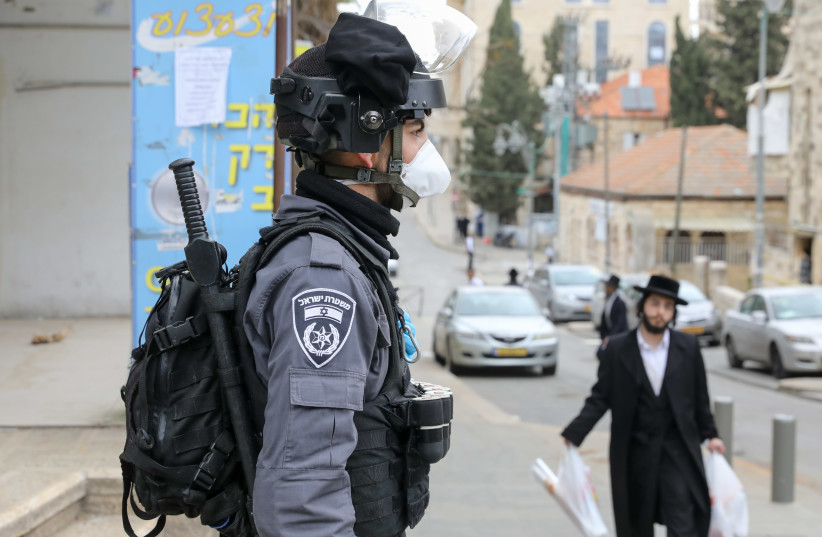There are four districts specified by the committee, which include mostly haredi (ultra-Orthodox) communities.

The special ministerial committee on coronavirus has approved creating “restricted zones” in Jerusalem beginning at noon on Sunday until Wednesday.
The people in these areas cannot leave unless they are going to work, getting essential medical treatment, attending the funeral of a nuclear family member or transferring their children to an ex-spouse.
In addition, they can attend legal proceedings or access other essential services with approval.
There are four districts specified by the committee, which include mostly haredi (ultra-Orthodox) communities.
The move comes after days of deliberation and protest against such a decision by Jerusalem Mayor Moshe Lion.
Among the areas that will now be restricted: Har Nof, Ramot, Romema, Neve Yaakov, Mea Shearim and Geula.
The only other Israeli city that has been designated a restricted zone is haredi Bnei Brak, which has more coronavirus per capita than any other Israeli city. Jerusalem has the most cases but five times as many people. However, the Health Ministry shows that the majority of Jerusalem cases were centered in specific, crowded neighborhoods.
As reported by The Jerusalem Post
